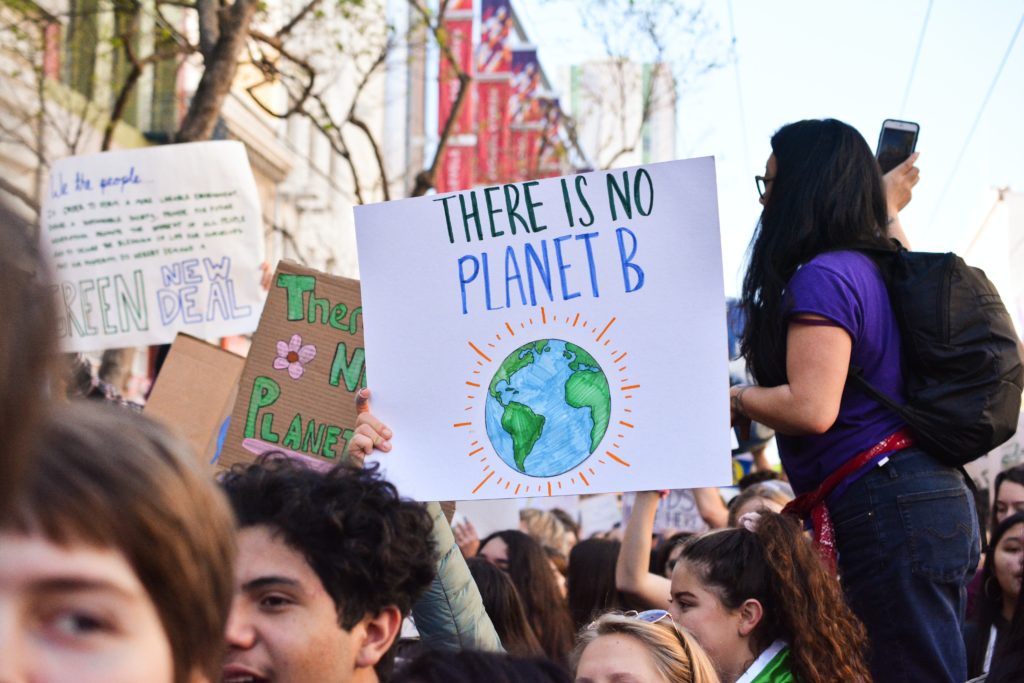In collaboration with the UNC Office for Diversity and Inclusion and the School of Social Work Office for Diversity, Equity, and Inclusion, the Jordan Institute for Families is co-hosting the Race, Racism, and Racial Equity (R3) Symposium virtual series. Our goals with this series are to 1) highlight the work of UNC scholars to confront racism, 2) foster collaboration between scholars including faculty, research scientists, postdoctoral fellows, and graduate students, and 3) make connections to the wider campus and community. The events are moderated by Dr. Travis Albritton, Associate Dean for Diversity, Equity, and Inclusion at the School of Social Work.
Our fourth event on September 9th, 2021, addressed the following theme: “The Many Faces of Environmental (In)justice: Scholarship addressing Racism, Infrastructure, and Climate Action.” Our panelists were Danielle Spurlock, Seth LaJeunesse, Morgan Richey, and Anderson (Andy) Al Wazni. Click here to view the session.
Danielle Spurlock (Associate Professor, Department of City and Regional Planning) shared her research on the disproportionate urban tree canopy in historically Black and White neighborhoods in Durham and Chapel Hill and the impact of seemingly “neutral” policies that maintain the status quo and reproduce inequity. She also discussed how valuing community-rooted organizations can lead to innovative and sustainable solutions that are created by and for the people who are most greatly impacted.
Seth LaJeunesse (Senior Research Associate, Highway Safety Research Center) presented Transportation in the US and NC: A system designed for the white and privileged among us. From the male-centric design of crash test dummies to the disproportionate impacts of traffic violence on Black and indigenous people, Seth demonstrated that the transportation system has greater consequences for racially minoritized groups and women. He highlighted the impact of excluding BIPOC, and low-income folks from meaningful engagement in decision-making and design in city planning and transportation. He ended the presentation with a thoughtful list of suggestions for action to address environmental inequities for elected officials, transportation professionals, scholars, research sponsors, and community advocates.
Morgan Richey (recent doctoral graduate in Epidemiology) shared his research on the racial inequities amongst workplace injury and death in NC. Latinx workers may be experiencing higher rates than White or Black non-Latinx workers. He also emphasized the limitations of publicly available data sources due to race and ethnicity questions that obscure information about Latinx communities.
Anderson (Andy) Al Wazni (third-year doctoral student, Social Work) introduced the global perspective on environmental injustices with her presentation, The Nexus of Climate Change, Vulnerability, and Conflict. She shared resources that demonstrate trends in climate conflicts, displacement, and gentrification, and disease from natural resource contamination that have more severe negative impact on marginalized people across the world. She closed the presentation with a powerful Call to Action; encouraging us to hold our governments accountable and get involved with local efforts.
A common theme across the panelists’ presentations was the importance of Participatory justice in the process of transforming our systems to address environmental hazards, especially climate change. Participatory justice must be intentional throughout our processes—from identifying needs and setting priorities to designing and implementing solutions and evaluating impact. A poignant quote from Seth’s presentation that illustrates this theme: “Much of what perpetuates racist system outcomes involves who is heard from, listened to, and included in decision-making.”
Another key takeaway from the webinar was the importance of integrating equity and anti-oppressive principles into research plans. It goes beyond representation in focus groups and organizing community advisory boards. We need to be more critical about who determines the research questions, providing appropriate material compensation for community members that share their expertise, and accessible methods of communicating the results of research, and so much more. Researchers have had a long and dark history of going into communities of color and extracting information to create papers they will go on to publish and become lauded. Usually, this happens without honoring (and compensating) the communities that made their accomplishments possible. We have to do better.
In summary, environmental injustices are broad and varied: they are present in workplace safety, transportation, natural and built environments, displacement from disasters, industrial carbon emissions and their impact. The panelists demonstrated that these injustices are present at the local, state, national, and international levels.

